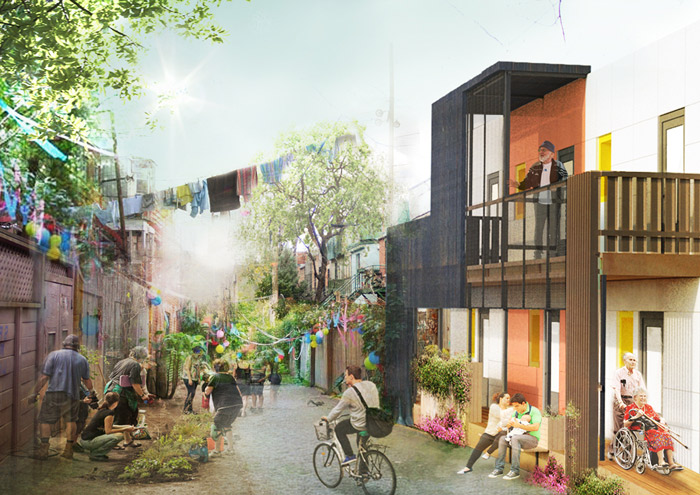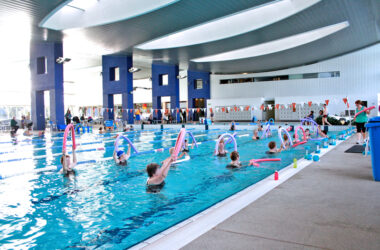Picture a scenario where the household hydro bill gets progressively cheaper, rather than more expensive. TeamMTL, a group of McGill University and Concordia University students and faculty, have collaborated to build a house that produces as much, if not more, energy than it consumes. This energy-efficient home is their entry in a prestigious international competition: The Solar Decathlon China.
This event challenges university students and faculty to design and build a net-zero energy house, with the long term objective of creating sustainable cities that will help reduce pollution and waste in some of the world’s most populated urban settlements. The only Canadian team entering the Decathlon is TeamMTL.
“[T]he opportunity to work with industry partners in the design and construction of a home that is a model of sustainability and affordability is rare for students, and it is an invaluable learning experience for our team,” said Sophie Jemtrud, communications leader for TeamMTL.
The competition will take place from July to October 2018 in Dezhou, China, and was revamped this year to cover “innovation, water use and re-use strategies, smart energy use, and market potential” in addition to its old goals, including “cost-effective architectural and engineering design, energy-efficient heating and cooling systems, appliances, and electronics, occupant health and comfort, and communications.”
Team members come from diverse departments, such as architecture, design and computation, arts, engineering, business, management, and dance and theatre. At the end of construction, the Canadian group will transport their residence to China and will compete with groups representing universities from around the world.
This team is tasked with the design and construction of a Deep-Performance Dwelling (DPD). Along with the net-zero and low-carbon design, the DPD takes a culturally-centered approach to city dwelling that is of great historic, social, and functional value.
TeamMTL is focused on building a sustainable home that contains characteristics and features that suit the urban environment in which it was designed for. The project exhibits blending of different cultural, religious, and philosophical beliefs into a uniquely designed home. Taking inspiration from Montreal’s streets, TeamMTL’s design draws from famous Plateau-style row houses. The team amalgamated Montreal’s urban housing with a style of courtyard housing popular in Shiyan, a city in Northwest China. Traditionally, sustainable homes cater to single families; this row house design allows Canada’s team to economically use the same regulation size, 120 to 200 square meters, to fit more individuals and families.
“[The residence] is the first of its kind in the history of the Solar Decathlon entries,” said Project Leader Michael Jemtrud, associate professor of Architecture at McGill University and former director of the School of Architecture at McGill.
Sponsors have provided the bulk of the funding for the project. Recently, Hydro-Québec sponsored TeamMTL, donating $250,000. Eric Fallion, Vice President at Hydro-Québec Distribution, explains that Hydro-Quebec wholeheartedly supports TeamMTL because the team’s project exemplifies global efforts to create a sustainable, decarbonized future.
Each team that successfully builds a solar house at the competition site will receive at least $100,000. Top finishers will receive significantly more, which will help continue to fund innovative, sustainable, and affordable technologies.
According to spokesperson Jemtrud, the group currently has about 15 students, but aims to expand—hoping to recruit up to 25 new members. Those who are interested in finding out more about the project and even visiting the house may do so at Concordia’s Loyola campus.









